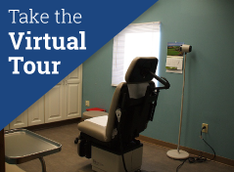Physician Assistants & Nurse Practitioners
Physician Assistants
What is a physician assistant?
A physician assistant (PA) is a health professional licensed by a state or credentialed by a federal employer to practice medicine as delegated by and with the supervision of a physician.
PAs provide a broad range of medical and surgical services as part of a team with their supervising physicians. They perform physical examinations, order and interpret diagnostic tests, prescribe medications, provide patient education and preventative health care counseling, and can also perform therapeutic procedures such as suturing lacerations and applying casts. PAs are recognized throughout the nation as quality health care providers.
What certification and licensure are required for physician assistants?
PAs receive their national certification from the National Commission on Certification of Physician Assistants (NCCPA). Only graduates of an accredited PA program are eligible to take the Physician Assistant National Certifying Examination (PANCE). Once a PA is certified, he/she must complete a continuous six-year cycle of continuing medical education to keep the certificate current. Graduation from an accredited physician assistant program and passage of the national certifying exam are required for Nebraska state licensure.
Nurse Practitioners
What can a nurse practitioner do?
The scope of nurse practitioner practice includes health promotion services (e.g. well child care) and management of acute minor (e.g. ear infection) and stable chronic (e.g. diabetes) illnesses. For more information about nurse practitioner scope of practice visit the American Academy of Nurse Practitioner website.
What is a Nebraska nurse practitioner’s education and preparation for practice?
Nurse practitioners are professional nurses who have a Master’s degree in their nurse practitioner specialization. Their graduate curriculum includes nursing theory and research, pathophysiology, pharmacology, health assessment, health promotion, and content on managing illnesses. In addition to their classroom studies, they have a minimum of 500 hours of clinical practicum in their clinical specialization during their program. For more information about nurse practitioner education visit the American Academy of Nurse Practitioner website.

